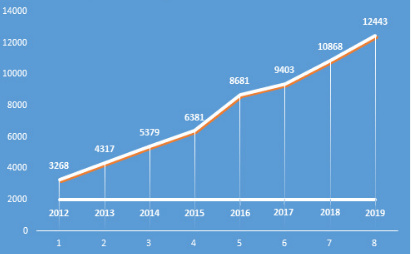Interpreting Fiscal Health: Why It Is Important for Economic Stability

As such, countries, corporations, and individuals need to maintain good fiscal health, as it indicates the capacity to manage funds effectively, spur economic growth, and anticipate uncertainties. Though fiscal health is often relegated to the realm of government finance, it involves budgets, spending decisions, and financial strategies across many sectors. Especially in times of uncertain markets and mounting financial constraints, this understanding counts. Financial health is the condition of an organisation’s financial aspects in performing its functions, covering its liabilities, especially profitability and liquidity.
Building Strong Fiscal Health
Balanced Revenue and Expenditure
The first indication of sound finances is when income and expenditure are equal. When a government spends more than it collects, debt balloons, taking funds away from future budgets. Long-term stability is achieved with a steady balance.
Responsible Borrowing
Borrowing is not inherently bad. In fact, many nations borrow to finance infrastructure and education. Yet responsible borrowing continues to limit debt levels and does not undermine future growth by being repaid punitively.
Efficient Tax Systems
A decent and effective tax system enables governments to raise revenue from their people without impinging on their rights. The ability to collect taxes effectively is vital to fiscal health because it allows a government to fund public needs.
Sustainable Public Spending
Spending in these areas, such as health care, transportation, and education, increases the nation’s productivity. Spending too much in non-core areas can create fiscal infirmity, leading to budget shortfalls.
Why Fiscal Health Matters?
There are many benefits of being fiscally healthy, such as economic stability, social security, and lower interest rates. Wealthy people bet on a nation’s financial stability to create jobs, trade, and growth. On the other hand, when it comes to money mismanagement, there’s inflation and unrest. Fiscal health is also critical to funding fundamental functions like education, infrastructure, health care, and safety net programs, so they continue to serve American families as intended. Finally, strong fiscal positions give countries a reputation as safe borrowers, allowing them to borrow cheaply and thus reducing their long-term debt burdens.
Measures to Improve Fiscal Health
• Best practices for regaining or maintaining fiscal health include:
Budgeting: Effectively planning a budget to avoid money wastage and make the best use of funds.
Debt Level Management: Keep a close eye on the debt load to ensure repayments remain sustainable and services continue to be provided.
Diversifying Income Streams: Looking at a variety of ways to generate income so you’re not dependent on a single revenue source.
Data analytics and digital payment systems are among the technologies that enable governments to track better how money is spent. It also helps reduce fraud and increase revenue through digital taxation tools. Through transparent automated systems, countries will be better able to gauge their fiscal health.
Fiscal Health at the Personal Level
People also depend on financial health in their everyday lives. In the long run, securing our financial independence—by saving money, paying down debts, and budgeting prudently—is crucial to lifelong security. Those who plan have a safer future and fewer financial difficulties.
The Future of Fiscal Health
In the development of economies, the soundness of public finances will remain critical. Good global governance of pandemics, energy crises , and climate change requires a flexible financial plan. Governments need to adjust to maintain stable growth and perform anti-catastrophic tasks.
Conclusion
Ultimately, good fiscal health is essential for governments, businesses, and households. “It stabilises the economy, drives growth and funding for core public services. Without careful economising, this could cause any economy to topple into crisis. Responsible budgeting, equitable taxation, and innovative technology can provide nations with greater financial security — and a brighter future. Whether you are a country or an individual, the mirror test of fiscal fitness and vigilance must be in place.





